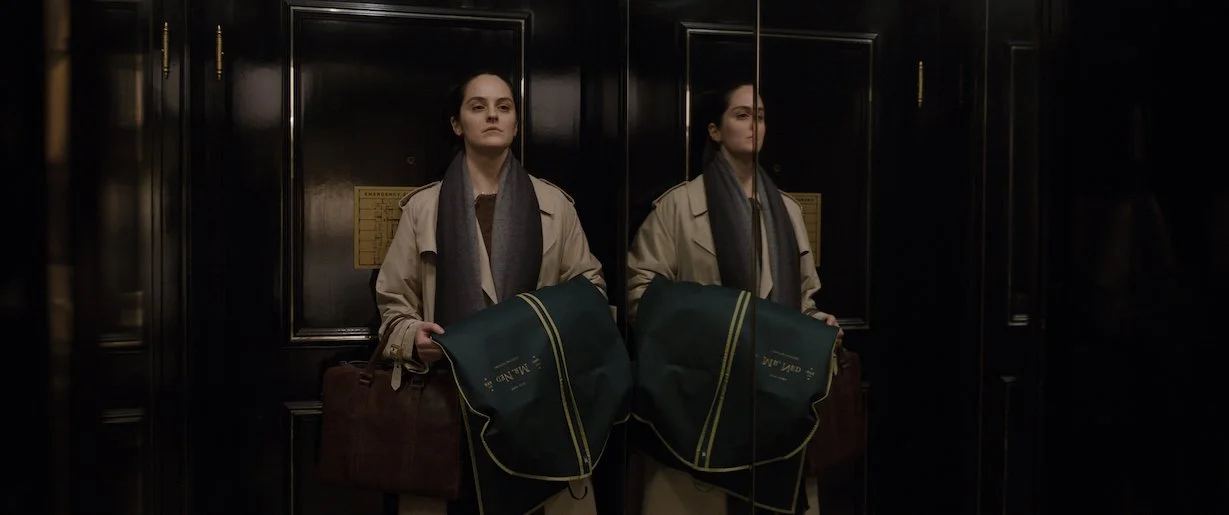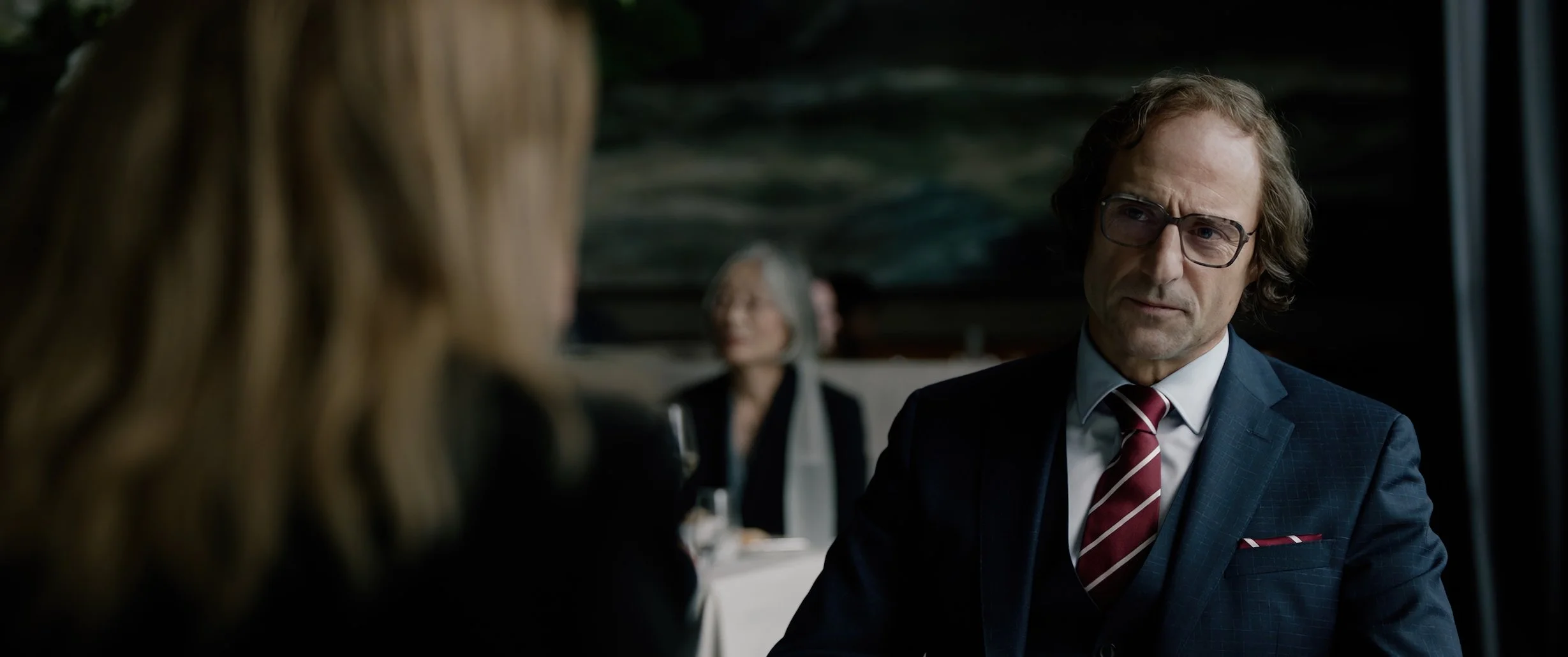Sticky Stuff
Director Todd Field goes 3-for-3 in taking a scalpel to entitlement, power and so-called cancel culture in ‘Tár’.
tár
Director: Todd Field • Writer: Todd Field
Starring: Cate Blanchett, Nina Hoss, Noémie Merlant, Sophie Kauer, Mark Strong, Julian Glover, Allan Corduner, Adam Gropnik, Zethphan Smith-Gneist, Mila Bogojevic
USA / Germany • 2hrs 38mins
Opens Hong Kong February 9 • IIA
Grade: A
Tár is not the kind of film you enjoy. You appreciate it for its craft, for its themes and storytelling. For its mood and performances and formal structure. But it’s not all warm and cuddly and a “fun” watch. This is actor Todd Field’s third film as director, after 2001’s In the Bedroom and Little Children in 2006. Clearly buddy fashions himself a latter day Terrence Malick, working at that snail’s pace. That’s not a slag. He just doesn’t make that many films, for whatever reasons. Too bad. Most of us will probably recognise him from Twister (!), or maybe Stranger than Fiction, though he hasn’t worked as an actor since 2003. He is also not Fisher Stevens, Todd Solondz (Happiness) or Todd Haynes (Velvet Goldmine), though it’s easy to conflate these Sundance darlings.
Like he did in his first two films, Field stitches together narrative, visual composition and razor sharp writing to create a story about spectacular, unpredictable – but somehow inevitable – psychological collapse, with Cate Blanchett’s composer-conductor Lydia Tár’s messy psyche at the top of the heap. You can see where Tár and Tár are heading almost from minute one – which is an extended self-aggrandising, bombastic artist Q&A that’s a perfect info dump and simultaneously enlightening. After that, it’s a slow, white-knuckle march towards one woman’s well deserved comeuppance for her misconduct, one that Field uses every inch of the screen, every shot, every long take, every silence to detail. This is the kind of capital-C cinema that "institutes” and “cinematheques” adore. But it’s a great piece of work anyway. Just not one that’s enjoyable.
After Lydia’s aforementioned fancy audience chat, we’re led into her life by her assistant Francesca (Noémie Merlant, Portrait of a Lady on Fire), herself a budding conductor who hopes her PA job will translate to orchestra work. She organises Lydia’s meetings with the investor who administers her fellowship for female conductors, Eliot (his usual perfect self, Mark Strong, Kingsman), her dry cleaning and her Juilliard masterclasses, which in a cringe-inducing single take, Lydia debates the value of classic work by “white cis men” with a student, Max (Zethphan Smith-Gneist). This will come back to bite her in the ass. When Lydia gets home to Berlin, where she’s the current conductor of the prestigious Berlin Philharmonic Orchestra and working on a performance and recording of Mahler's Fifth Symphony, we meet her wife, concertmaster and first violin Sharon (Nina Hoss, Homeland, The Contractor), and their daughter Petra. Along the way we learn that Lydia is exacting, focused, bitchy, entitled, manipulative – and very, very talented.
Lydia’s life starts to unravel when she decides the accompanying piece for the Mahler will be Elgar's Cello Concerto (if you’re familiar with classical music this is a thing) and also decides the soloist will come from within the orchestra. She has an ulterior motive that becomes inextricably linked with a legal deposition that arises, Francesca up and quitting, and a viral video from that Juilliard talk. That is the tip of a very large, reputation-shattering iceberg.
The joy of watching Tár (and really, the less you know going in the better) comes from watching Field’s absolutely precise construction of Lydia Tár’s persona and his equally precise deconstruction of it, in the shadow of our current cultural climate. By setting the action in the world of elite symphonies there’s an added air of superior untouchability that only compounds the impact of Lydia’s recklessness. Should straight white guy Field be allowed to tell a story about a “U-Haul lesbian” and her abuse of power? Max might beg to differ but the universality of the news bears him out, and it’s one of the many points Field is making in Tár. Aside from that Field’s grasp on the material is so firm, so assured it’s nigh impossible to argue he doesn’t know exactly what he’s doing, that he didn’t choose this woman to be his jumping off point. There are no wasted frames, every look means something, every space reveals something – seriously, if you want a crash course on mise-en-scène, start here – there’s no fat to trim (at two-and-a-half hours!). You know when that film teacher said “Show, don’t tell”? That’s this.
In his first original story (Children and Bedroom were both adapted from literature) Field observes and comments but never judges; he poses a million questions but doesn’t provide any answers, and uses every word like a lash. Tár is as caustic a character dissection as any ever put to film, and everything you’ve already heard about Blanchett’s performance is true. And though the finale wouldn’t land without Hoss, Strong and Merlant, Blanchett. Is. Blistering as Tár. She doesn’t play Lydia; she inhabits her, and the result is truly astonishing. Field went from 0 to 100 as a filmmaker, and he’s pulled amazing performances out of his actors before (Kate Winslet, Tom Wilkinson, Jackie Earle Haley) but Tár and Tár are, by far, his best work. Which means #4 should be killer. Let’s hope we don’t have to wait 15 years to see it. — DEK



